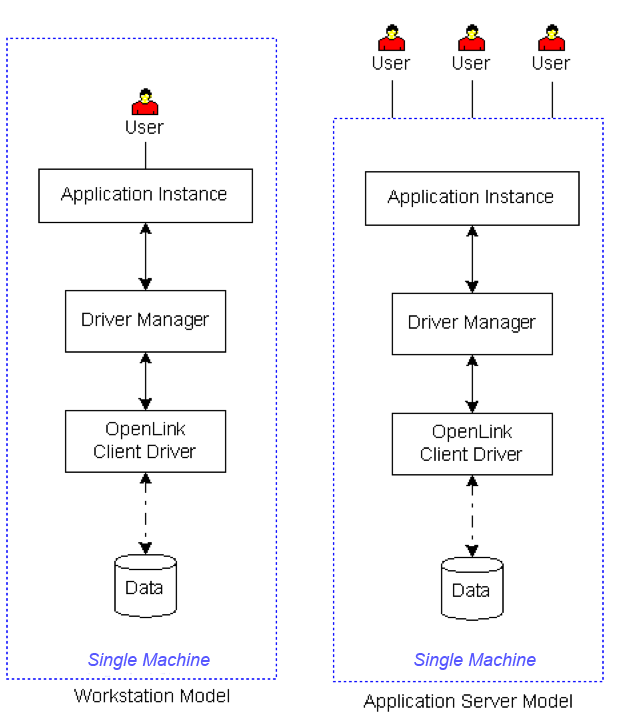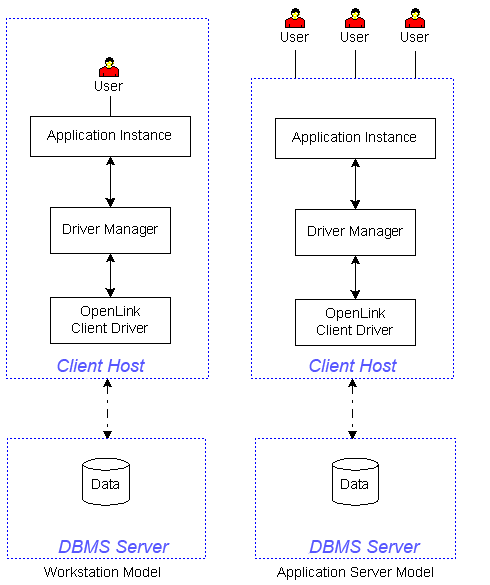Supported Architectures - Single-Tier (Express Edition) Drivers
OpenLink's Express Edition ODBC drivers support the following data access architectures. The Workstation and Application Server designations specify the appropriate license to deploy in a given situation. Workstation licenses apply to architectures in which one user connects to an application instance at one time. Application Server licenses apply to architectures in which multiple users connect to the same application instance at one time.
Single Machine Architecture

DBMS Server with Distinct Client Host(s)

 Users are humans or non-human agents that leverage applications to obtain or manipulate SQL data held in data repositories.
Users are identified by the hostname or IP address of the machine which hosts their target application(s) Users appearing inside bounding box of workstation machine represent local users and support a Workstation architecture.
Users appearing outside bounding box represent remote users and indicate an application server architecture.
Users are humans or non-human agents that leverage applications to obtain or manipulate SQL data held in data repositories.
Users are identified by the hostname or IP address of the machine which hosts their target application(s) Users appearing inside bounding box of workstation machine represent local users and support a Workstation architecture.
Users appearing outside bounding box represent remote users and indicate an application server architecture.
 The application instance refers to individual instances of applications that users exploit in the target architecture.
Each instance of the application is tasked with returning SQL data to users in a manner that is meaningful to them.
The application instance refers to individual instances of applications that users exploit in the target architecture.
Each instance of the application is tasked with returning SQL data to users in a manner that is meaningful to them.
 The driver manager is a generic utility that loads drivers when requested to do so by client applications.
The driver manager is a generic utility that loads drivers when requested to do so by client applications.
 The
The  Data refers to SQL data that is contained in the target data store.
Data refers to SQL data that is contained in the target data store.
 Memory-based inter-process communications between architectural components.
Local IPC communications can only occur when architectural components are hosted on the same, physical machine.
Memory-based inter-process communications between architectural components.
Local IPC communications can only occur when architectural components are hosted on the same, physical machine.
 TCP/IP-based inter-process communications between architectural components.
TCP/IP-based communications can occur across machine boundaries.
TCP/IP-based inter-process communications between architectural components.
TCP/IP-based communications can occur across machine boundaries.